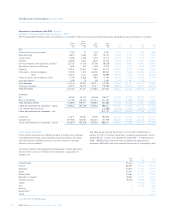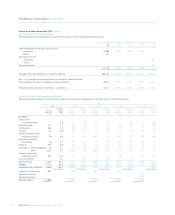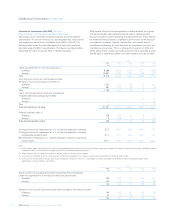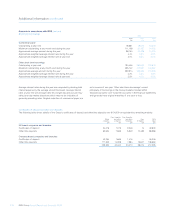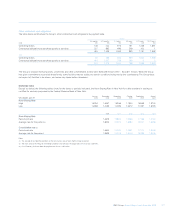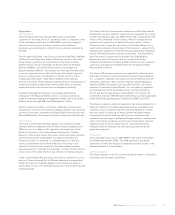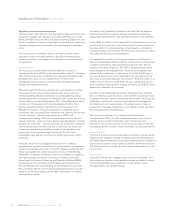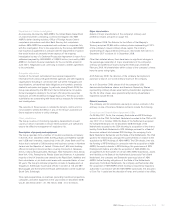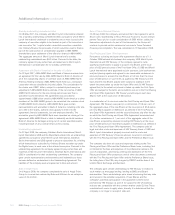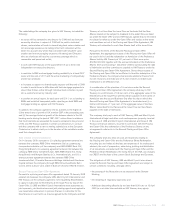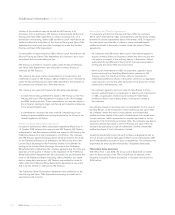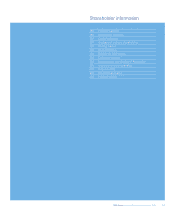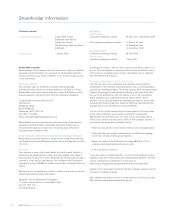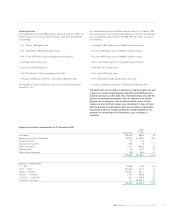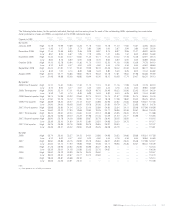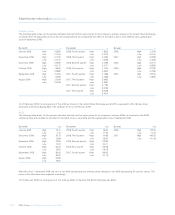RBS 2008 Annual Report Download - page 281
Download and view the complete annual report
Please find page 281 of the 2008 RBS annual report below. You can navigate through the pages in the report by either clicking on the pages listed below, or by using the keyword search tool below to find specific information within the annual report.
RBS Group Annual Report and Accounts 2008280
Additional information continued
Regulatory reviews and developments
The Group works with domestic and international trade associations and
proactively engages with regulators and other authorities such as the
Basel Committee, the Committee of European Banking Supervisors and
the EU Commission in order to understand the implications of proposed
regulatory change and to contribute to the development of regulatory
policy.
The Group and its subsidiaries have co-operated fully with various
regulatory reviews and developments in the UK and internationally,
including enquiries or investigations into alleged or possible breaches
of regulations.
United Kingdom
The Group successfully implemented the Markets in Financial
Instruments Directive (MiFID) by the implementation date of 1 November
2007. MiFID established a comprehensive legislative framework at the
European level, which is now implemented in the UK, for the
establishment and conduct of investment firms, multilateral trading
facilities and regulated markets.
FSA authorised firms must also comply with rules designed to reduce
the scope for firms to be used for financial crime and in particular
money laundering. Revised Joint Money Laundering Steering Group
Guidance Notes were issued on 13 November 2007 to take into account
the new Money Laundering Regulations 2007. These Regulations came
into force on 15 December 2007 and implemented the EU’s Third
Money Laundering Directive. Amongst their other provisions, the
Regulations endorse a risk based approach to combating money
laundering, while also prescribing ‘enhanced due diligence’ for non face
to face customers, ‘politically exposed persons’ (PEPs) and
correspondent banking. Whilst for all material purposes the Group is
already compliant – these provisions having been anticipated in industry
guidance for some time – internal processes are continually reviewed to
ensure best practice standards are met. In particular, the Group has
issued new internal policy guidelines based on the regulations and
supporting industry guidance against which all divisions have
undertaken a gap analysis as a basis for further action plans where
necessary.
In the UK, the Group has engaged proactively with a variety of
legislative and regulatory consultations. Financial stability and depositor
protection have been a key focus for the UK regulatory authorities. The
Group participated fully in the consultation process on the Banking
Reform Bill. In addition, the Group continues to comment on regulatory
and legal changes that impact its business. Examples include the
Department for Business, Enterprise and Regulatory Reform (BERR)
transposition of the Consumer Credit Directive and Consumer Law
Review; HM Treasury’s Dormant Bank and Building Society Accounts
Bill; Lord Hunt’s Review of the Financial Ombudsman Service and the
review of the Banking Codes and the FSA’s consultations on liquidity
and regulatory capital.
A review by the Competition Commission and the FSA into Payment
Protection Insurance is ongoing, with the Competition Commission
drafting the implementation order following finalisation of its remedies.
In July 2008, the Office of Fair Trading (OFT) published the results of its
market study into personal current accounts and is now consulting on
remedial action in the three key areas of transparency, complexity of
charging structure and switching. The OFT is also continuing its inquiry
into credit and debit card interchange fees.
UK regulated firms within the Group are members of the Financial
Services Compensation Scheme (FSCS), which provides compensation
to eligible customers of authorised financial services firms that are
unable to meet their obligations. The FSCS is funded through annual
levies charged to UK regulated firms. These levies are apportioned
between firms on the basis of their shares of the FSCS tariff base: in
the case of deposit takers, this means that levies are determined by
their share of protected deposits. As a result of FSCS involvement in a
number of bank failures in 2008, there will be a significant impact on
levies charged to deposit takers, starting with those for 2008-09. These
impacts are reflected in the accounts.
The FSA, in their 2008/09 Business Plan, emphasised the continued
focus on ‘Treating Customers Fairly’ in line with their view that the area
of greatest structural concern remains the retail market. The Group has
undertaken a process of continuous improvement of management
information and root cause analysis of customer issues in order to
ensure that it can demonstrate that it is consistently treating customers
fairly throughout the product lifecycle.
The Group also continues to co-operate with the Information
Commissioner’s Office, the UK’s independent public body set up to
promote access to official information and to protect personal
information. The Group continues to improve its processes in line with
changing guidelines in order to meet information security requirements.
European Union
In the EU, the Group has also responded to a number of proposals for
regulatory and legislative change, including proposed amendments to
the Capital Requirements Directive and the establishment of Colleges of
Supervisors to enhance cross border cooperation between supervisors.
The Group also follows closely the work (and recommendations) of the
G7 and G10.
United States
In the US the Group also engages constructively with regulators and
other bodies on regulatory and legislative change and seeks to ensure
proper implementation and compliance. Current issues include
mortgage reform and student lending.


